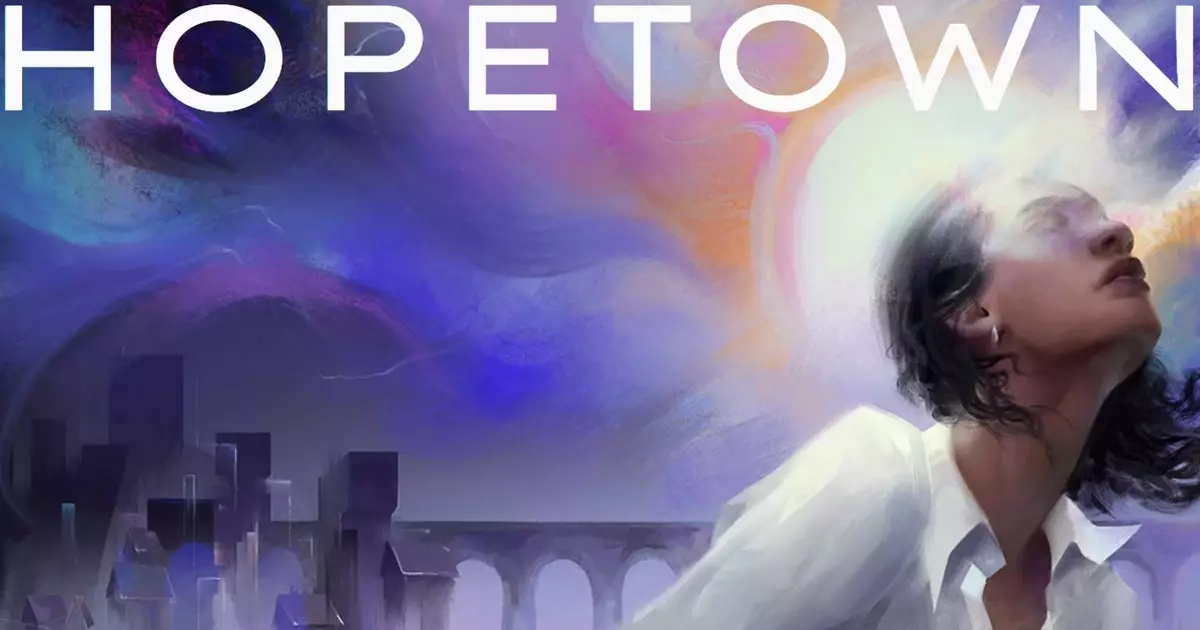With the reveal of the first gameplay image from Longdue Games’ Hopetown, excitement is palpable among the RPG community. This title, frequently referred to as a “spiritual successor” to the critically acclaimed *Disco Elysium*, comes adorned with a stunning visual aesthetic that expertly balances a rich palette of purples and yellows infused with a painterly style. As a player first gazes upon this vivid artwork, it might be hard not to succumb to the allure of exquisite concept art—the detailing appears almost too polished, leading one to question: is this truly an in-game screenshot?
The visuals alone set the stage for what could be a groundbreaking experience, but therein lies the challenge: how does a game maintain the gilded promise of its artistic presentation once players dive into its narrative? The initial impressions suggest that Longdue Games is well aware of the high standards set by its predecessor and the outrageous expectations that accompany it. But as the discussion shifts towards dialogue and philosophical underpinnings, excitement quickly becomes tempered with skepticism.
Navigating the Complexities of Dialogue
The dialogue snippets released alongside the gameplay image evoke mixed reactions. One pivotal line uttered by the protagonist in an exchange with an elderly pigeon-feeder—a casual yet grotesque remark about drinking water—raises eyebrows. While *Disco Elysium* was no stranger to bold and edgy content, it managed to balance shock with genuine emotional resonance. Hopetown’s efforts instead risk leaning too heavily on crassness, potentially veering into territory that feels juvenile or unoriginal.
It’s critical to evaluate whether these exchanges truly encapsulate the multifaceted nature of human interaction, which is the hallmark of great RPG character development. The exaggerated “Gonzo” response—an over-the-top call to “feed the masses!”—feels particularly jarring. It is essential for such dialogue to stem from organic character motivations rather than merely serving as a flimsy attempt to draw laughter. When expressions of self-destructive cynicism and nihilism come across as shallow rather than reflective, the game’s emotional depth is undermined.
The Philosophical Aspirations or Lack Thereof
In discussing hot-button topics like morality and the human condition, *Hopetown* finds itself at a crossroads. The game markets itself as a fusion of emotional richness and philosophical discourse akin to *Planescape: Torment*, a title revered for its intricate storytelling and existential considerations. The statements tucked within the gameplay image seem poorly equipped to carry such heavy themes, presenting clichés that lack the necessary introspection. Phrases that should encapsulate profound wisdom instead feel like empty proclamations strung together without robust context.
To fulfill the lofty ambitions set forth, Hopetown needs to craft scenarios and dialogues that promote genuine introspection rather than relying on obvious or bombastic statements. A mere glance at the landscape of the narrative might yield possibilities that teach players about the intricacies of human nature, and the value in our imperfections, rather than making throwaway comments that sanitize complexity.
Critical Engagement with Legacy and Design
As Hopetown positions itself alongside *Disco Elysium*, it inevitably faces scrutiny regarding its origin and intent. Is it venturing into the realm of tribute, or does it risk being perceived as a derivative repetition of what made the earlier game shine? The exploration of such foundational themes calls for a thoughtful balance—crafting an experience that stands on its own merits while paying homage to what came before.
This sequel’s reliance on edgy facets of humor must not detract from its effectiveness in invoking genuine emotional engagement. Characters that merely mimic the rebellious spirit of their predecessors threaten to come off as insincere or uninspired. The challenge lies in creating authentic characters that embody their own distinct experiences, rather than rehashing tropes from beloved titles.
In its artistic ambition and narrative aspirations, *Hopetown* holds the potential for considerable impact. Only time will tell if it can transcend the pitfalls of imitation and become a staple in the RPG genre, striking the balance between aesthetic allure and thought-provoking narrative. With every reveal, it walks a thin rope between brilliance and banality—a dynamic the gaming community will scrutinize with both yearning and caution.


Leave a Reply